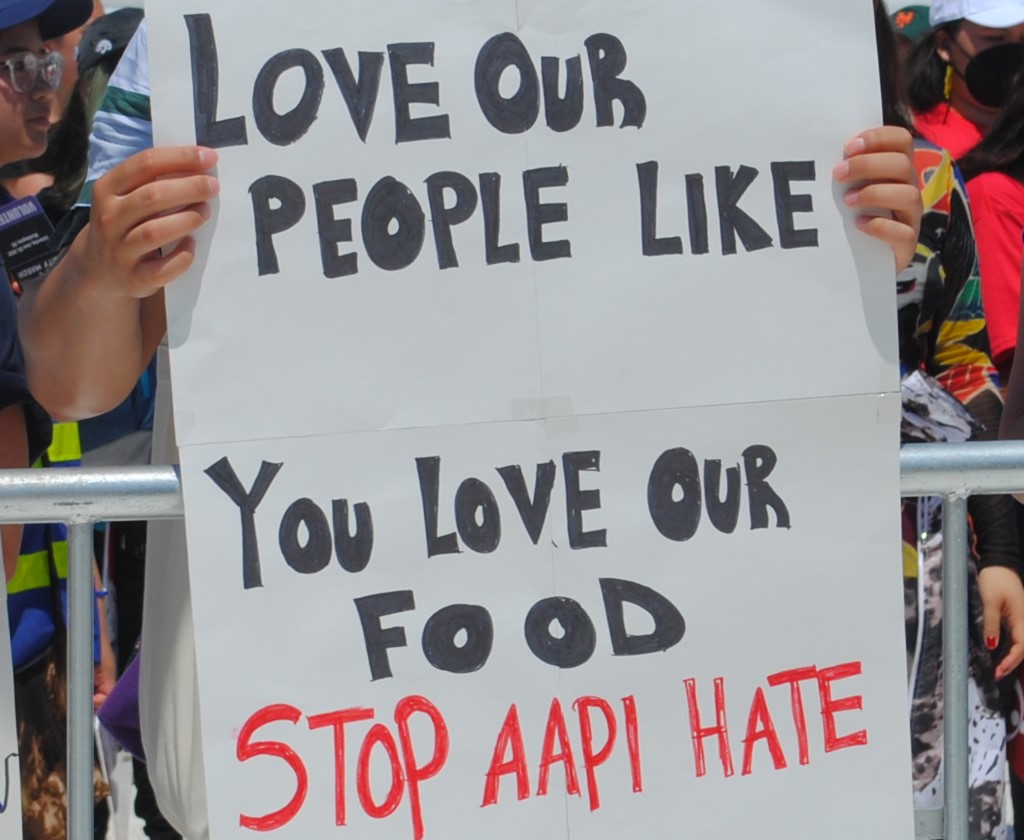A young Thai American bartender, who was pepper-sprayed as suspects yelled “Go back to your country,” believes she was victimized twice: once during the attack, and then again at the San Francisco District Attorney’s office, which refused to charge the incident as a hate crime.
Kunni, the victim, has a video of the incident, which occurred during a late night shift at the bar she works in San Francisco’s Tenderloin district. She has presented prosecutors with the video, along with witness statements which indicate a racially-motivated attack.
But, she said, prosecutors ignored both, saying there was insufficient evidence to charge a hate crime. Kunni requested a jury trial, but, she said, the District Attorney’s office discouraged her from that as well. Her attacker was arrested, but bailed out and is now free without charges. She lives in the neighborhood in which Kunni lives with her daughter, but no restraining order has been granted.
“I still have PTSD and panic attacks. I go to the psychiatrist every Wednesday to manage my symptoms. This feels very unfair to me. The prosecutor did not want to hear my story,” said Kunni.
Grandpa Vicha
At an Aug. 23 Ethnic Media Services news briefing focusing on the difficulty of prosecuting hate crimes, Monthanus Ratanapakdee shared a similar story about her late father Vicha. On Jan. 30, 2021, the 84-year old grandfather was taking a daily walk around his San Francisco neighborhood. He was fatally pushed to the ground by suspect Antoine Watson, who then left the scene. Watson was arrested two days later, and remains in jail without bail. He has been charged with attempted murder, but no hate crime charges have been added, despite video evidence of the violent attack.
Three and a half years later, no trial date has been set.
Justice Delayed
Ratanapakdee has founded Justice for Vicha to honor her father, and to advocate for other victims of suspected hate crimes. The delay in justice for her father, and an inherent distrust of law enforcement, results in many people not reporting hate crimes or incidents, she says.
“Both the victim and the defendant have the right to a fair and speedy trial. That has not happened in my father’s case,” said Ratanapakdee.
The Bias Factor
Last year, law enforcement agencies from around the state of California reported 1,970 hate crimes. Of those, just 5 went to trial, according to data from the California Attorney General’s office. In 2021, the state was experiencing a wave of violent attacks against Asian Americans: just one hate case went to trial that year. Moreover, judges in California are increasingly using diversionary sentencing — behavior modification classes, counseling, or restitution to victims — which may result in no jail or prison time.
Santa Clara County Deputy District Attorney Erin West, a 26-year veteran prosecutor, said when a case comes to her office which has potential elements of a hate crime, or if the victim believes it is a hate crime, two prosecutors review the case to determine whether hate crime charges can be added. “We take these cases very seriously, and we evaluate them very seriously,” she said.
Marsy’s Law
Bias must be a significant factor for a hate crime to be charged, said West, noting that with many such cases, bias is not the motivating factor for the crime.
Referring to the delay in Ratanapakdee’s case, West noted that Marsy’s Law requires prosecutors to keep victims notified of what is happening in their case. The law further requires victims to be informed of plea deals or bail hearings.
Data on the number of hate crimes prosecuted in any year is inaccurate, said West, noting that it takes some time for evidence to be collected and for cases to be brought to trial. Hate crime cases will not necessarily be tried in the year they were reported, said West, which reflects in low data counts.
The Need for Better Data
“I would suggest that we shake the trees at the California Department of Justice and see about getting a form that better reflects the number of hate crimes prosecuted,” she said.
“Victims and survivors feel like they are not always getting the justice they seek and that they deserve,” said Manjusha Kulkarni, co-founder of Stop AAPI Hate and executive director of the AAPI Equity Alliance. She noted a recent California state auditor’s report which found that law enforcement often fails to properly identify crimes as hate crimes, and fails to report them to the Justice Department. Officers are improperly trained to identify hate crimes, she said.
“Law enforcement officers have a reluctance to see things as hate crimes because they don’t want to believe that their city or their region is a hateful one,” said Kulkarni. She noted also that hate relating to Asian Americans and Pacific Islander victims is not necessarily universally accepted as hate in the same way as a cross burning or swastika graffiti.
The Path to Healing
Healing can happen outside of the courtroom, she said, noting that the California vs. Hate initiative can provide victims with numerous resources fostering healing, including mental health services.
“It’s not simply enough to prosecute cases when hate happens. We have to actually prevent it from happening in one of the most diverse states.”
‘We really need to put the kibosh on hate against all marginalized communities,” said Kulkarni.




